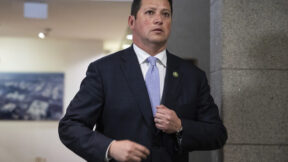Italian Court Attempts To End Internet, Convicts Google Execs of Privacy Violations
 Yesterday, an Italian court convicted three high-ranking Google executives of violating the privacy of an autistic child. The three were given suspended sentences of six months’ imprisonment.
Yesterday, an Italian court convicted three high-ranking Google executives of violating the privacy of an autistic child. The three were given suspended sentences of six months’ imprisonment.
Violating the privacy of an autistic child? Ahem . . . Even through the verbal latex of legalese, that sounds rather bad. But what, precisely, does it signify?
Possibly not what you’d expect. Around this time last year, an Italian Down-syndrome advocacy group succeeded in bringing Google (in absentia) to court, alleging myriad crimes stemming from a video, uploaded to Google Video by users in 2006, of an autistic boy being hectored and beaten by a gang of school-aged Italian ruffians.
Most of the allegations were dismissed by Oscar Magi, the sublimely named judge presiding over the case; but one, the charge of criminal negligence, had traction.
The Guardian takes it from here:
“[The video] was posted . . . on 8 September and remained there until 7 November, when it was taken down after a complaint by Italian police.
[. . .]
“Google’s lawyers said the company had taken the video off the site within three hours of being formally notified by the Italian police. But the prosecution argued that it had shot to the top of the most-viewed list and been a subject of heated controversy long before.”
The prosecution’s argument was premised on the assumption that Google should be preempting complaints about the content it hosts, not merely addressing those complaints as they arise. If you buy that, well, then the celerity with which Google struck down the video in question is immaterial, because a third party — the police — had to prod them to it first.
The court, needless to say, bought it. Its aim set on establishing a stern, not to say draconian, precedent, Magi’s court yesterday ruled that Google’s executive was, indeed, guilty of negligence for permitting the video to go unchecked as long as it did. More broadly, and thus more scandalously, the ruling implies that Google is radically culpable for content created by its users.
“We are very satisfied,” the prosecuting attorneys stated afterward, “because by means of this trial we have posed a serious problem: that is to say, the protection of human beings, which must prevail over corporate interests.”
Let men trump the megacorporation! Let children not get trampled in the quest for evermore bandwidth! Here, here! Hard to disagree with that.
Then again, it’s not so hard at all. How accountable are the proprietors of a public domain, especially one as immense and multitudinous as Google, to be held for the litter chucked there by others? What are the regulatory — in this case, janitorial may be the better descriptor — obligations of those who cultivate a space for public use?
Pages: 1 2
New: The Mediaite One-Sheet "Newsletter of Newsletters"
Your daily summary and analysis of what the many, many media newsletters are saying and reporting. Subscribe now!






Comments
↓ Scroll down for comments ↓